(200 products available)





































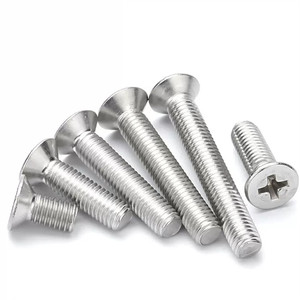
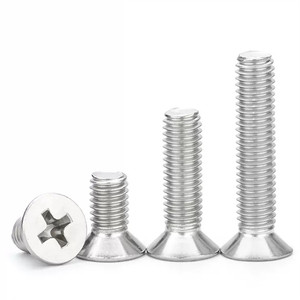
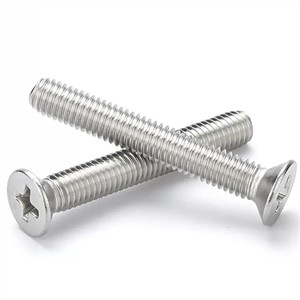





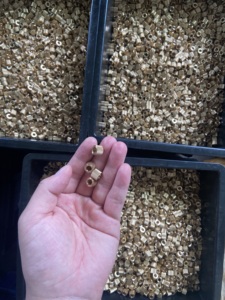




















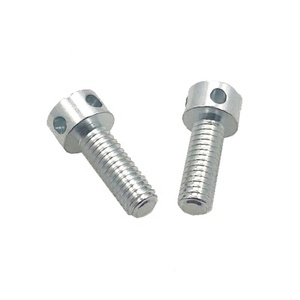





















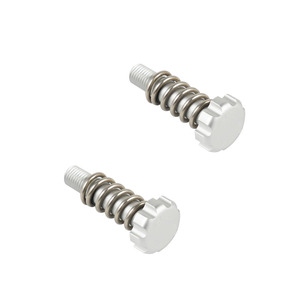























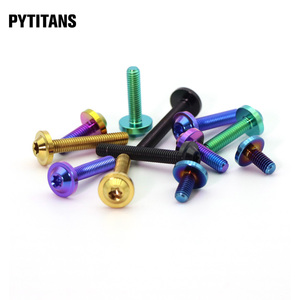














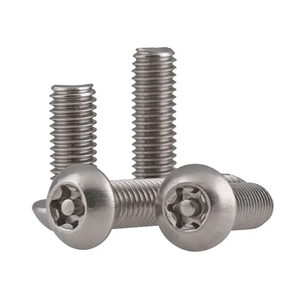

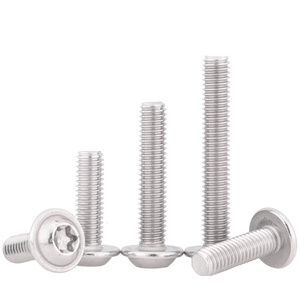


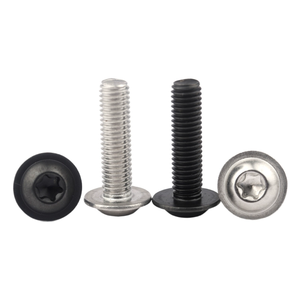
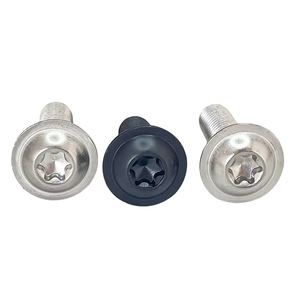
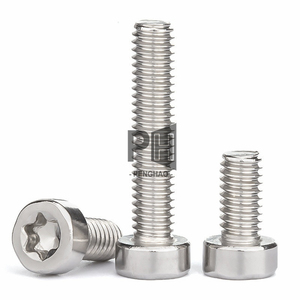




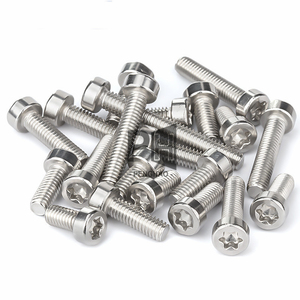


























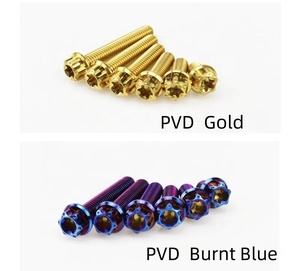

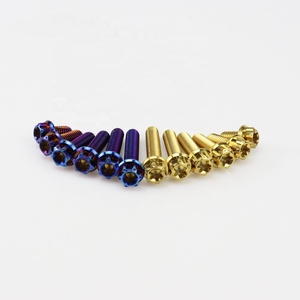





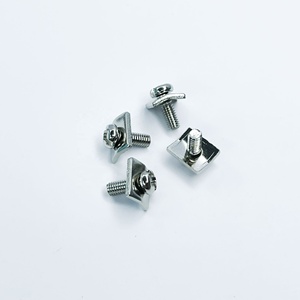




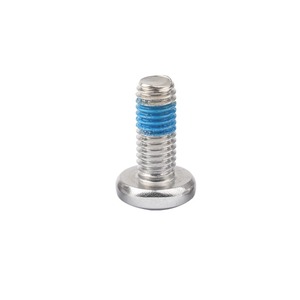

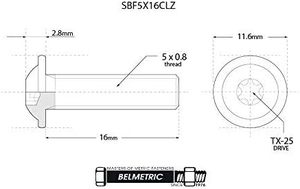










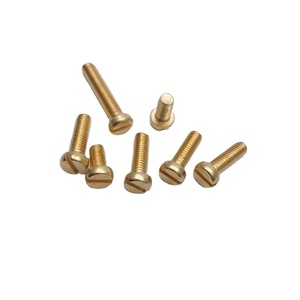

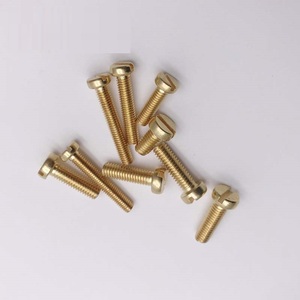


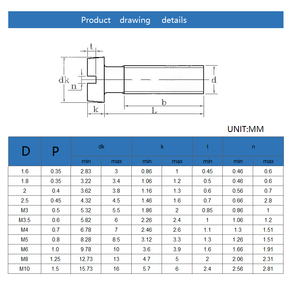












Screw M4x10 refers to a screw with a metric diameter of 4mm and a length of 10mm. It is a medium-sized screw often used in metal and engineering applications.
Machine screw
This type of screw is designed to be used with nuts or screw threads, often going through an assembly. Normally, they are made from hard materials such as brass, steel, or stainless steel, to provide structural weight support. Common applications include electronics and machinery where small but secure fasteners are needed.
Self-tapping screw
This screw type is similar to the M4x10 but is designed to create its own thread as it is screwed into a material. They are usually used in thin metal or plastic materials, as there is no need for a pre-drilled hole or nut. They are convenient for quick assembly in automotive and building applications because they cut their own threads to provide a firm hold.
Wood screw
Compared to machine screws, wood screws have a slightly different design. They are comprised of a tapered head and a screw thread that runs down their shaft, which allows them to hold firmly in wooden materials. These screws are fabricated from steel, stainless steel, or brass. Due to their specific design, they are mostly suitable for fastening components in wood-based products, furniture, and construction projects.
Sheet metal screw
The main difference between these screws and other screws is that they have a different design, particularly concerning the type of head and threads. Their primary purpose is to fasten together different sheet metal pieces. Certain thread designs are meant to provide a secure grip on metal surfaces. They can be employed as frame connectors and in HVAC systems, which explains how they are resistant to environmental elements.
The durability of an M4x10 screw is thus closely associated with the material used in making it and with different elements such as mechanical strength, resistance to corrosion, and specific application suitability. Below are some commonly used materials for these screws:
Carbon steel
Carbon steel screws gain their durability from the additional carbon ingrained into the iron. While carbon steel correlates with strength and toughness, it is more susceptible to rust without some forms of treatment or coating. It is also commonly used, especially in applications, where strength is of the essence and where corrosion is not a significant risk, such as indoors in machinery or electronic devices.
Stainless steel
Stainless steels include chromium, nickel, and molybdenum to resist corrosion and oxidation. The austenitic structure impossibly offers toughness even at very low temperatures. Stainless steel screws can survive high heat, salt exposure, and harsh chemicals, making them ideal for marine applications or outdoor settings where a weather-resistant element is needed. They are resistant to rust, corrosion, and even wear.
Brass
Brass is a copper and zinc alloy that gives the metal non-magnetic properties and excellent corrosion resistance. In addition, it is relatively softer than other metal types, with electrical conductivity. Although not as strong as stainless steel or carbon steel, brass M4x10 screws are best suited for electronics, marine environments, or applications where resistance to corrosion and non-magnetic properties is essential.
Alloy steel
Alloy steel screws are fabricated using steel and then add elements such as chromium, molybdenum, or vanadium to enhance their hardness, tensile strength, and impact resistance. If this metal is hardened, tempered, and quenched, the resultant screws would be extremely durable, able to handle high-stress mechanical environments. Commonly used in automotive, aerospace, or heavy machinery applications because of their enhanced strength and fatigue resistance.
Zinc-coated steel
Zinc-coated, or galvanized, steel screws, have a layer of zinc applied to help resist corrosion. The coating serves as a sacrificial anode, which means that even though zinc will corrode, it will prevent the underlying steel from rusting. Zinc-coated screws are usually employed in outdoor construction projects, roofing, or siding, which must withstand moisture without compromising the integrity of the material.
Mechanical engineering
The M4x10 screw is vital for mechanical engineering since it offers secure fastening in mechanical systems and parts. It may be found in engines or machine tools, for instance, where accuracy and long-term performance are mandatory. Strong, durable screws help to ensure reliability and strength during operations; hence, they are ideal for components subject to vibration or stress.
Aerospace
The M4x10 screw is used in the aerospace sector to hold non-structural components, wire, fixtures, and other instruments. Low weight and high performance are desirable, so corrosion-resistant stainless steel or titanium versions of M4x10 are commonly used in this sector. It plays a key role in maintaining aircraft functionality and safety and is thus lightweight yet strong and able to resist extreme environmental conditions.
Consumer electronics
Consumer electronic gadgets such as smartphones, laptops, and appliances use the M4x10 screw. It holds parts together within a design to ensure that components such as circuit boards, casings, or displays perform their functions. With the increasing number of electronics, the screws need to be small yet strong enough to withstand multiple uses. The M4x10 screw meets this requirement because it is easy to install and provides valuable support in the delicate electronic components.
Medical devices
M4x10 screws are utilized in medical devices, including diagnostic equipment, surgical tools, and implants. In critical applications such as healthcare, the M4x10 screw is fabricated from high-strength, biocompatible, and corrosion-resistant materials, such as stainless steel. The screws play an important role in assuring the safety and effectiveness of medical solutions by adding to the structural integrity of precision instruments used in patient care.
Renewable energy systems
M4x10 screws are employed in renewable energy systems, for example, solar panel supports and wind turbine construction. These screws provide strong fastening elements in areas where mechanical loads and environmental impacts must be sustained. There are also corrosion-resistant and durable variants commonly used in outdoor environments. The M4x10 screw is important for renewable energy to ensure the reliability and longevity of these eco-friendly energy sources.
Here are some important factors to pay attention to when getting an M4x10 screw. The screw size, in this case, is standard. It has a diameter of 4 mm and a length of 10 mm.
Material
Screw M4x10 can be manufactured from carbon steel, stainless steel, brass, and alloy steel. Each material has unique properties, such as strength, corrosion resistance, and weight. Choosing the right material depends on the project requirements.
Head type
The M4x10 screw has different head types in the form of Phillips, slotted, hex, and Torx. Each head type has a specific driving tool that fits into it. For instance, a Phillips head type provides a self-centering function, making it easier to drive. A slotted head is a more traditional type and is compatible with a simple flathead screwdriver. A hex or Torx head offers more torque, reducing the chances of the head stripping during installation. The choice of the head type depends on what tools are available and the required torque for the specific project.
Thread type
A machine screw has a metric thread type pitch of 0.7mm, which is standard for precise applications. The screw shows that the threads are closely spaced, giving a smooth finish. The fine thread allows it to penetrate smoothly and holds tightly in hard materials like metal or plastic. Such characteristics make it a good choice for projects where a secure, low-maintenance fastener is required. Correctly identifying the thread type ensures compatibility with existing components and maintains the integrity of the assembly.
Coatings and plating
The M4x10 screw has different types of plating and coating, such as zinc, chrome, or other anti-corrosive coatings. Each option affects the screw's appearance, corrosion resistance, and lubrication. For example, the zinc coating places the screw as a good choice for outdoor applications requiring corrosion resistance. The coating also adds to the screw's durability and can sometimes improve its electrical conductivity, making it ideal for electronic applications.
Load-bearing capacity
For structural applications where the screw bears weight or is subject to heavy use, the tensile strength, and material fatigue properties must be taken into account. The M4x10 screw has a relatively small size, so though it does not carry huge weights, it still gives good performance in high-stress mechanical or load-bearing assemblies.
Concerning the Metric screw system, the letter M indicates a screw-thread system that conforms to the ISO standard for metric screw threads. In layman's terms, the M before the number designation, therefore, indicates that this is a metric screw and not some other type of screw, such as an inch-based screw. The M4 in the case of the M4x10 screw means that the screw has a nominal diameter of 4 millimeters.
The M4x10 screw is a metric screw with a diameter of 4 mm and a length of 10 mm. "M4" means the screw's diameter is four millimeters, and "10" indicates its length in millimeters. This specific size is ideal for lightweight fastening tasks in mechanical and electronic applications, unlike other screws with different sizes.
M4x10 screws find their primary usage in consumer electronics, machinery, and automotive engineering. They also work well with metal parts, making them great for mechanical designs, electronic devices, and machine components where limited space exists and high precision is required.
Certain Stainless steel or zinc-coated screws offer great corrosion resistance. These materials form a protective layer that prevents rust from forming on the metal. Zinc-coated steel screws provide a barrier against moisture and salt, which will corrode the metal; thus, they are ideal for exterior construction projects. Stainless steel is good for marine applications since it withstands salt exposure.